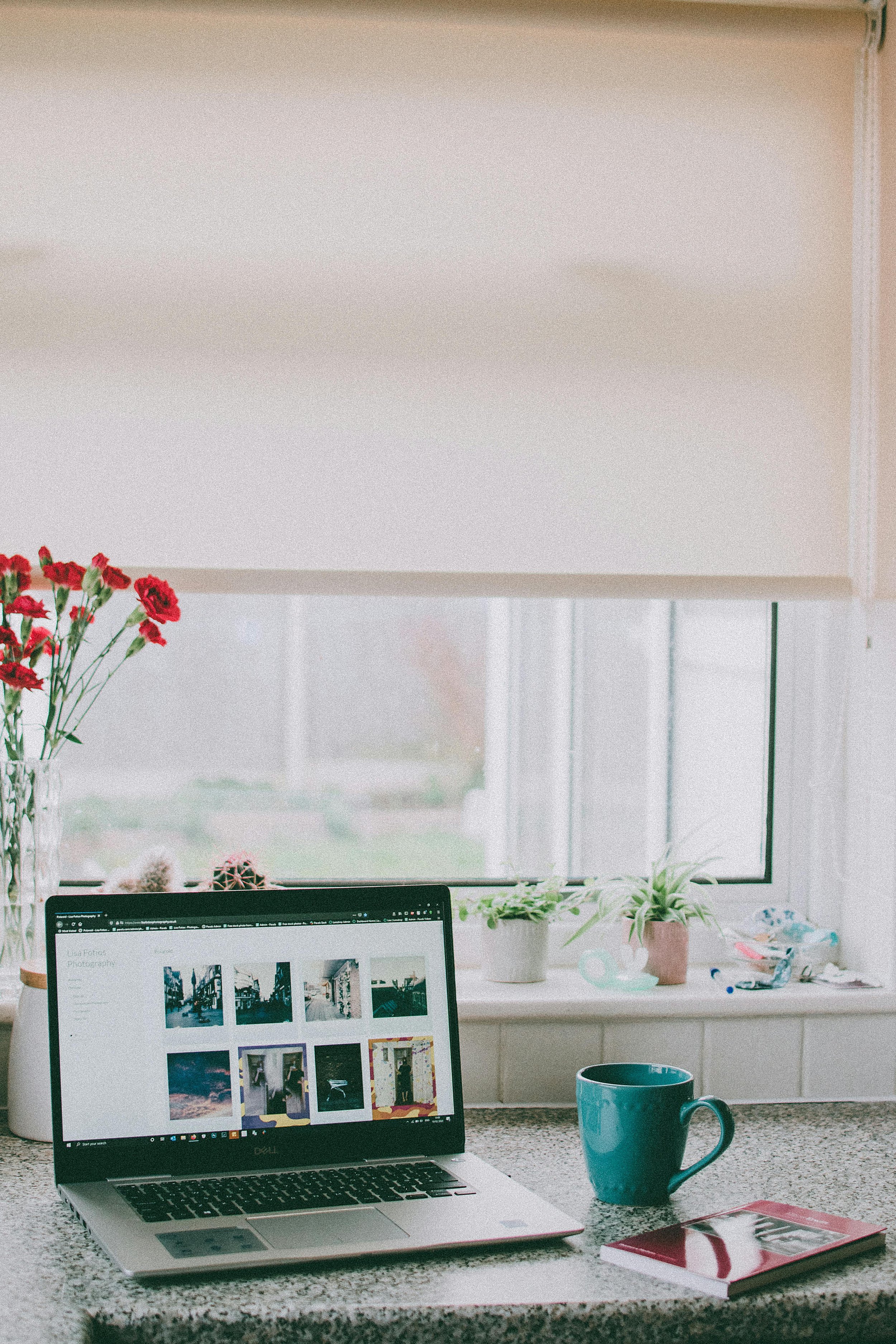Tips for Creating the Perfect Digital Art Studio
Setting up your digital art studio is an exciting step, whether you're starting fresh or giving your current space a refresh. Having a workspace that inspires creativity and helps you stay productive can make all the difference.
Whether you’ve got a whole room in your house that you can use as an office, or just a cozy corner, you can create the perfect space for your creative flow.
If you're just starting out or redesigning your existing space, there are key factors that can make a difference in how you work.
Here’s 8 practical tips to help you set up your perfect digital art studio.
1. Choose the right space
First things first, you’ll need to pick a spot in your home or studio that feels comfortable and inspires creativity. It should be quiet, well-lit, and roomy enough for your computer, monitor, or other digital tools.
Natural light can boost your mood and productivity, but make sure it doesn’t cause glare on your screen. Having your desk by a window can be a great idea, but it’s also important to keep in mind that you might find yourself watching people out on the street instead of working. Been there, done that.
Having a designated workspace helps you get into the zone when it's time to work and makes it easier to unwind when you're done – so your bed or the couch is probably not the ideal work space.
2. Good posture is good life
As a digital artist, you'll likely spend long hours glued to a screen, sitting, so make sure your setup is ergonomic. A good chair with proper support and an adjustable desk can do wonders for your back and neck.
You could also try a standing desk or a sit-stand converter to switch things up during the day, keeping your body more active and your energy levels higher. Trust me, your body will thank you later!
3. Get organized & optimized
To be efficient with your working hours, it’s important to be organized and have everything you need in your space. Your setup should be equipped with all the right tools for your art — your drawing tablet, iPad, or computer should be able to handle your software like Photoshop, Blender, or Procreate without lagging.
Make sure your computer has enough RAM and processing power, or invest in an external hard drive if things are slowing down. This would not only make it easier for your computer to work with large files but also allow you to keep all your art organized and safely backed up in a dependable external hard drive.
Don’t forget to secure your data! Regularly back up your projects to an external hard drive or a reliable cloud service to prevent accidental loss. Investing in good antivirus software is also essential to protect your files from malware or cyber threats — your work is too valuable to risk!
On the note of organization, a cluttered desk can lead to a cluttered mind, so keep things tidy. Make sure to always have a clean and minimalist studio where everything has its place. You can make use of cable organizers, drawers, or shelving to store your equipment nicely.
4. Stationary for when inspiration hits
Even for a digital art studio, having a notebook or some sketch paper nearby is great for quick ideas, sketching, or notes during meetings. Sometimes inspiration hits in the most analog ways, so it’s a good idea to keep a few pens and sketchpads within reach. It’s also fun having your to-do list on a physical paper because it’s super satisfying to scratch it off once you’re done!
5. Protect your eyes
Staring at a screen all day can seriously tire out your eyes. Blue light filters or blue light-blocking glasses can help reduce eye fatigue. A matte screen protector can also cut down on screen glare.
Remember the 20-20-20 rule: every 20 minutes, take a 20-second break and look at something 20 feet away. It’s a simple trick that helps your eyes stay happy.
6. Lighting matters – a lot
On that note, good lighting is also crucial for avoiding eye strain. Plus, it helps with seeing colors accurately on your screen. If natural light isn’t enough, invest in some soft LED lights that have adjustable brightness. Some artists like to use ambient or color-changing lights to create a creative atmosphere, but just make sure they don’t mess with the colors on your monitor.
7. Good audio is a must
Most artists love having music, podcasts, or ambient sounds in the background while working. Investing in a quality sound system or noise-canceling headphones can provide a distraction-free environment and can keep you focused and inspired. If you’re in a shared space, white noise machines or earplugs can help block distractions and keep you in the zone. If you love discovering new music to inspire you, you might want to check out this service that ships you vinyls based on your music taste.
8. Add creative & personalized touches
Finally, your studio should reflect your unique style and artistic identity. Surround yourself with things that inspire you — whether that’s art by artists you love, your own art, or a mood board for a dream project.
Decorate with items that make you feel creative, like plants, figurines, or a custom neon sign with your favorite mantra. It’s your space, so make it fun, inspiring, and you!
Creating the perfect digital art studio is all about making it personal to you. Find the right balance between comfort, creativity, and practicality, and you’ll have a space that helps your productivity and gets you excited to create every day.
Read Next:
10 Must-Have Accessories for Digital Artists






















![Poster Design “[746] I am trapped in my visions…” by @yaojadzn
Darren Yao is a multidisciplinary designer based in Brooklyn, New York. For him, design is more than just creating — it’s about collaboration, connection,](https://images.squarespace-cdn.com/content/v1/63b2fdbe4376de5bfdc6771f/1743166562565-JBQ4W255EA5L7ZTSOF8F/image-asset.jpeg)